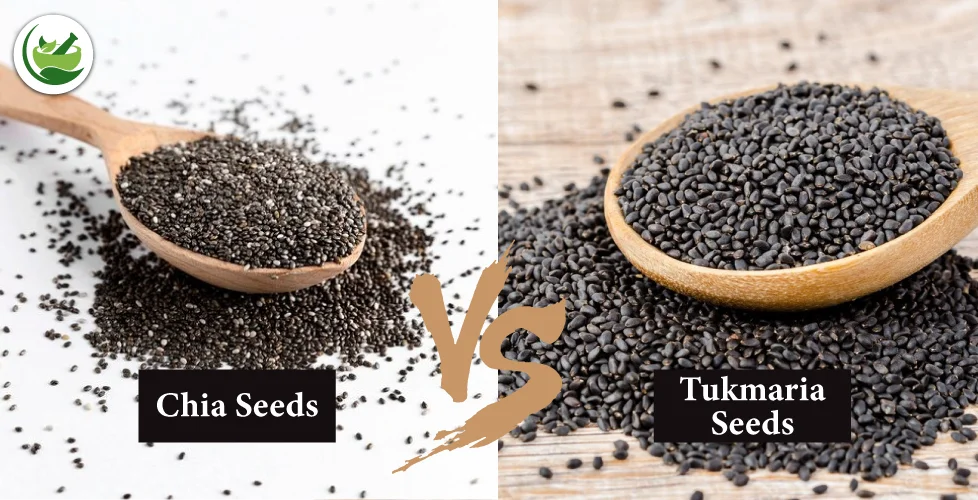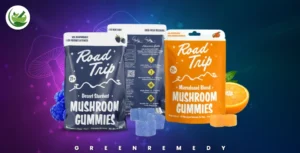
In the world of superfoods and health-conscious eating, chia seeds and tukmaria also known as basil seeds often come up in conversation. Both are touted for their nutritional benefits and are popular additions to smoothies, puddings, and other dishes. But are they really the same thing? Let’s delve into the similarities and differences between chia seeds and tukmaria to uncover the truth.
Related blog Chia Seeds vs. Tukmaria Seeds: Which Is Better for Your Health?
What Are Chia Seeds?
Chia seeds come from the plant Salvia hispanica, which is native to Mexico and Guatemala. These tiny, oval-shaped seeds are often praised for their impressive nutritional profile. Chia seeds are rich in:
- Omega-3 fatty acids: Essential for heart health and reducing inflammation.
- Fiber: Promotes digestive health and helps with satiety.
- Protein: Provides a plant-based protein source.
- Minerals: Including calcium, magnesium, and phosphorus.
When soaked in liquid, chia seeds form a gel-like consistency, making them a popular choice for creating chia pudding or adding texture to recipes.
Related blog Do Chia Seeds Have Gluten? Benefits of a Gluten-Free Diet
What Is Tukmaria?
Tukmaria, also known as basil seeds or sabja seeds, come from the Ocimum basilicum plant, more commonly known as sweet basil. These seeds are smaller and black, often used in various Asian cuisines and traditional medicines. Tukmaria seeds are valued for their:
- High fiber content: Similar to chia, they aid in digestion and promote a feeling of fullness.
- Antioxidants: Help combat oxidative stress and support overall health.
- Vitamins and minerals: Including calcium and iron.
- Hydration properties: They swell significantly when soaked in water, forming a gelatinous texture.
Related blog Top 10 Tukmaria Seeds Benefits for Your Health
Similarities Between Chia Seeds and Tukmaria
- Gel-Like Consistency: Both chia seeds and tukmaria develop a gel-like texture when soaked in liquid, which makes them popular in puddings, smoothies, and desserts.
- Nutritional Benefits: Both seeds are high in fiber and offer several health benefits, including improved digestion and a sense of fullness.
- Culinary Uses: They can be used interchangeably in recipes that require a thickening agent or texture, such as in beverages or as a topping for dishes.
Key Differences
- Plant Origin:
- Chia Seeds: Derived from Salvia hispanica.
- Tukmaria: Comes from Ocimum basilicum (sweet basil plant).
- Nutritional Content:
- Chia Seeds: Higher in omega-3 fatty acids and protein.
- Tukmaria: Rich in antioxidants and certain vitamins, but with lower omega-3 content.
- Taste and Texture:
- Chia Seeds: Have a mild, nutty flavor and a slightly crunchy texture even after soaking.
- Tukmaria: Have a neutral flavor but a more pronounced gelatinous texture after soaking.
- Culinary Traditions:
- Chia Seeds: More common in Western health foods and recipes.
- Tukmaria: Predominantly used in South Asian cuisines and traditional remedies.
Health Considerations
Both chia seeds and tukmaria are excellent choices for enhancing your diet, but they offer slightly different benefits. Chia seeds are a better source of omega-3 fatty acids, which are crucial for heart health. Tukmaria, on the other hand, might be preferred for its use in traditional recipes and its antioxidant properties.
Related blog The Nutritional Benefits of Tukmaria Seeds: A Comprehensive Guide
Conclusion
While chia seeds and tukmaria share some similarities, such as their gel-forming ability and health benefits, they are not the same. Their differences in plant origin, nutritional content, and traditional uses make each unique. Incorporating both into your diet can offer a diverse range of health benefits and add variety to your meals. Whether you prefer the nutty flavor of chia seeds or the traditional charm of tukmaria, both are valuable additions to a health-conscious diet.






